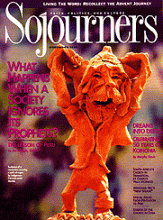It's early morning in late September, and National Public Radio sports commentator Frank DeFord jolts me awake with the news that it's the 20th anniversary of Title IX. Ahhh, what nostalgia overtakes me. Suddenly I'm running past snowbanks in my Pete Maravich look-alike sneakers in the pre-dawn, trying to make it to the gym before the bell strikes 7 from the tower of the English building.
The women's basketball team at my small, New England liberal arts college ranked just below men's intramural, round-robin, left-handed Ping-Pong in priority for gym use. Hence the 7 a.m. practices.
"Be glad. It's a big improvement," said the sophomores-through-seniors on the team. The previous year, they had played their games in a pint-sized gym in a dormitory basement. The court ended at the walls, and more than one of my teammates had been carried off to the hospital for X-rays after slamming into one.
As high school athletes, we had played with six women on the court, and only two (known as "rovers") were allowed to cross the center line. I guess the prevailing data showed that most young women couldn't actually run the length of a basketball court without fainting. My team had played our games in orange-and-blue jumpers, sort of the team-colors equivalent of playing basketball in a dress.
So this was progress. We were grateful that the college had opened the door to the gym for us--even if we got there most mornings before the sun. And we were thankful for the handful of people who showed up to watch our games--mostly roommates and children from the town for whom we were "Big Sisters" through a college program. Women and children cheered us on in the early afternoons.
Read the Full Article

